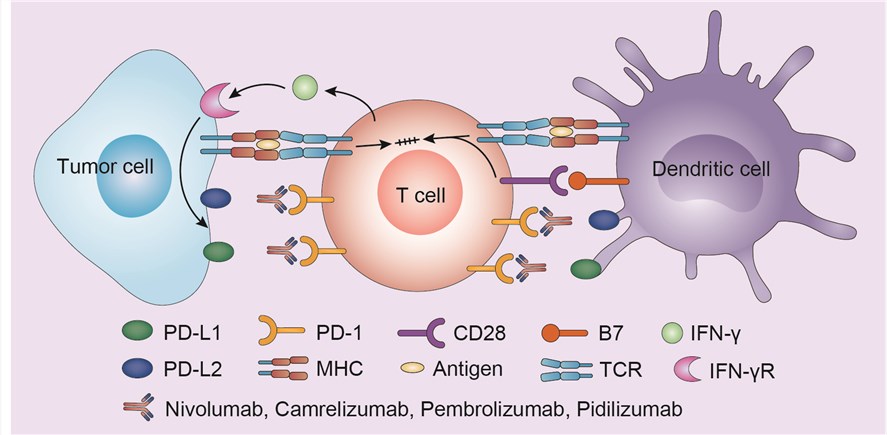Pidilizumab Overview
Introduction of Pidilizumab
Pidilizumab (formerly CT-011) is a humanized (from mouse) monoclonal antibody (mAb) developed for the treatment of cancer and infectious diseases. Pidilizumab was originally thought to bind to the programmed cell death protein 1 (PD-1) immune checkpoint molecule, however, recent evidence suggests that Delta-like 1 is its primary binding target while binding to PD-1 is secondary and restricted to non-glycosylated and hypoglycosylated forms of this molecule. Pidilizumab causes in the attenuation of apoptotic processes in lymphocytes, primarily effector/memory T cells. Pidilizumab was developed in the early 2000s based on a murine antibody created by Drs Brita Hardy and Abraham Novogrodsky of Tel Aviv University. The efficacy was studied in a variety of experimental tumor models across a spectrum of malignancies including lymphoma, melanoma and fibrosarcoma, and lung, colon and breast cancers. In all models, the antibody was able to inhibit tumor growth, extend survival of tumor-bearing mice and generate tumor-specific protection against tumor re-challenge. More recently, clinical application of pidilizumab has shown promising responses.
Mechanism of Action of Pidilizumab
PD-1 is an inhibitory receptor belonging to the B7-receptor family that is expressed on lymphocytes and myeloid cells. The PD-1 receptor in conjunction with receptor ligands, programmed death-ligand 1 (PD-L1) and programmed death-ligand 2 (PD-L2), functions to regulate the immune response. In inflammatory states, including malignancy, the sustained expression of PD-1 and the receptor ligands results in T-cell exhaustion and immune escape. This mechanism has been adopted by tumors to prevent antitumor activity in tumor-infiltrating lymphocytes that are present in the tumor microenvironment. Pidilizumab is a humanized IgG-1 kappa recombinant mAb. It was developed from a murine version, mCT-011 or BAT, that was generated with the immunization of Balb/c mice with membranes of a human B-cell lymphoma cell line (Daudi). The target for pidilizumab is the PD-1 receptor and it specifically binds to an epitope on activated T-cells, B-cells, NK-cells and myeloid cells (CD14+ cells). In ex vivo studies, pidilizumab blocks PD-1 activity specifically on CD4+CD45RO+ effector/memory T lymphocytes resulting in attenuation of the apoptotic process. Pidilizumab upregulates the survival of protein Bcl-xL via the induction of the P13K signaling pathway to protect effector/memory (CD45RO+) lymphocytes from cell death. Pidilizumab functions on natural kicker (NK) cells to augment the antitumor activity, presumably via the P13K pathway, which is central to activation signaling in these cells. Both the effects on effector/memory T cells and NK cells result in the enhancement of antitumor immune response and the generation of tumor specific memory cells.
 Fig.1 Mechanism of action of Pidilizumab
Fig.1 Mechanism of action of Pidilizumab
For research use only. Not intended for any clinical use.
This site is protected by reCAPTCHA and the Google Privacy Policy and Terms of Service apply.

